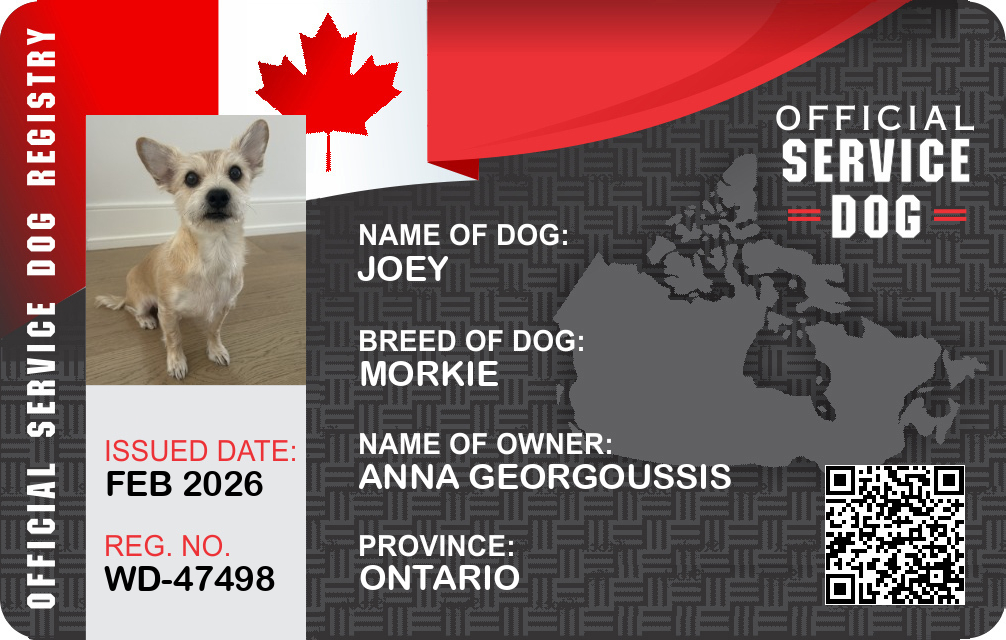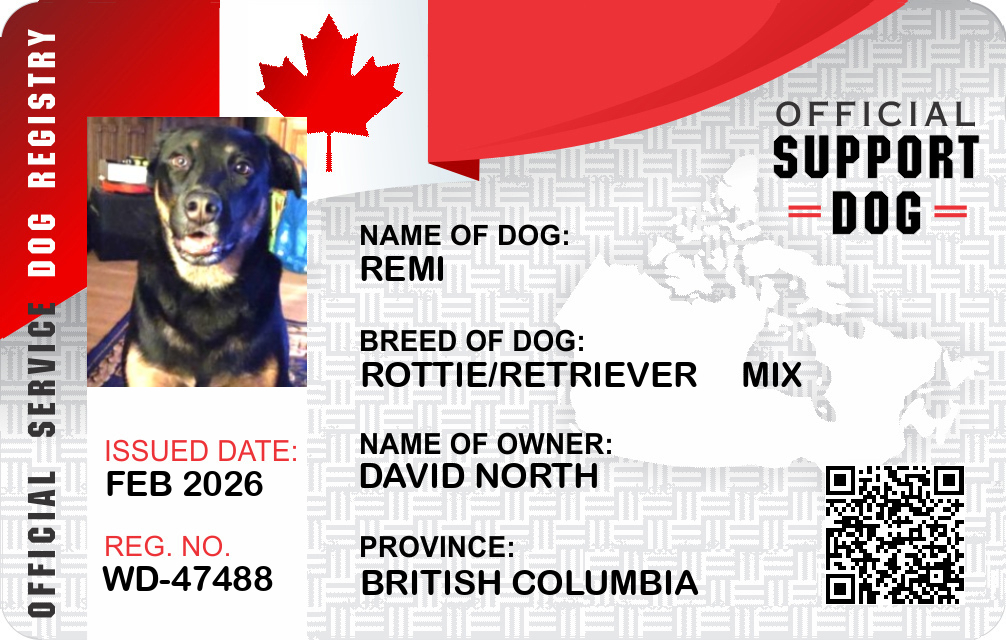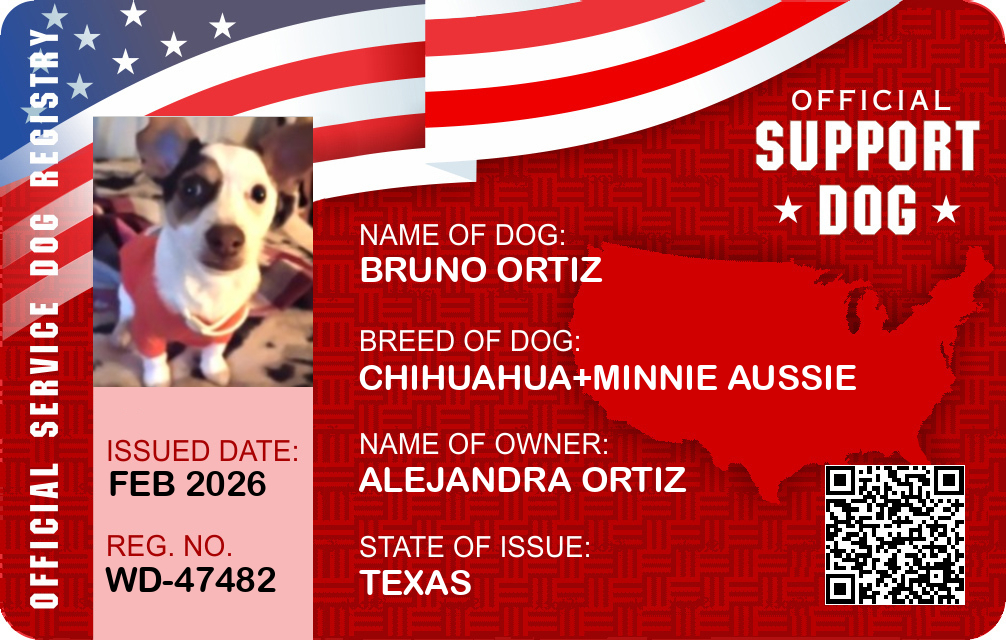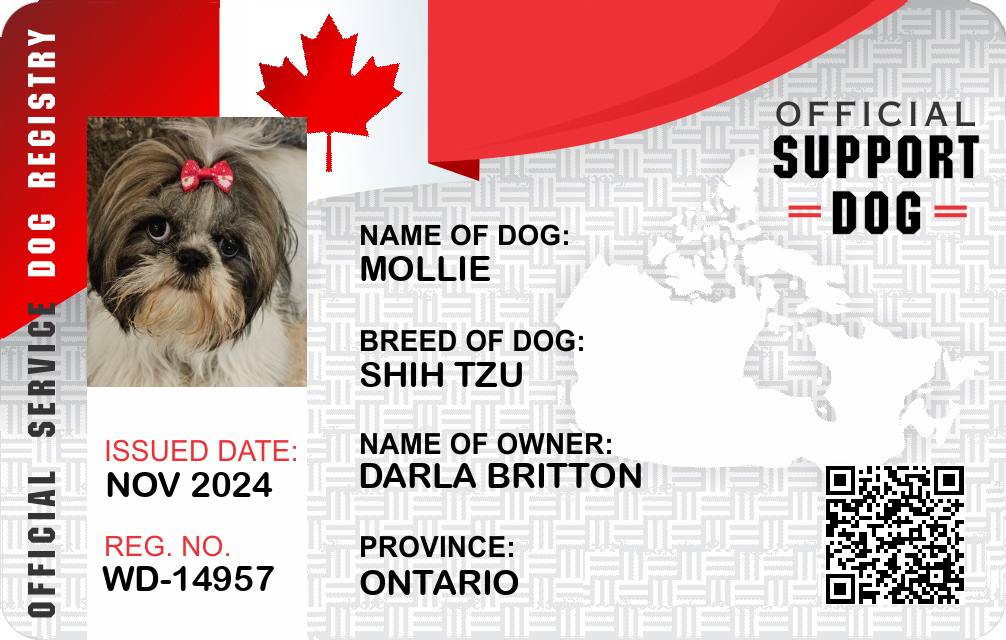Washington Emotional Support Animal Laws
Get Your Documents
Example State Cards


Overview of ESA and Legal Definitions in Washington
What is an Emotional Support Animal?
An Emotional Support Animal (ESA) is an animal that provides comfort and emotional support to individuals with mental or emotional disabilities. Unlike service animals, ESA do not require specialized training to perform specific tasks but instead help alleviate symptoms associated with psychological disorders. In Washington, as in other states, ESA are recognized under federal law for their role in supporting individuals’ mental health, although they do not have the same legal status as service animals.
How ESA Differ from Service Animals
Service animals are specifically trained to perform tasks directly related to a person’s disability, such as guiding a person who is blind or alerting someone who is deaf. Under the Americans with Disabilities Act (ADA), only dogs, and in some cases mini horses, qualify as service animals. ESA, by contrast, can be various species and are valued for their companionship and emotional benefits rather than task-specific assistance. This distinction is crucial as service animals have broader access rights compared to ESA.
Key Federal Laws Affecting ESA (e.g., FHA, ACAA)
Several federal laws impact the treatment and recognition of ESA. The Fair Housing Act (FHA) mandates that ESA owners are entitled to reasonable accommodations in housing situations, enabling them to live with their animals despite “no pets” policies. The Air Carrier Access Act (ACAA), which previously mandated airlines to accommodate ESA, was revised in 2020. Following the change, airlines are no longer required to recognize ESA as service animals and may treat them as regular pets, imposing fees or other restrictions. These federal statutes provide a baseline of ESA rights that Washington state laws can expand upon.
State-Specific ESA Laws in Washington
Housing Rights and Responsibilities
In Washington, individuals with ESA are safeguarded by the FHA, which ensures the right to reasonable accommodation in housing. Landlords must waive pet policies and associated fees for ESA owners, provided the request is supported by proper documentation. However, the presence of an ESA must not impose an undue financial burden on the landlord or disrupt other tenants. Tenants must provide a legitimate ESA letter from a qualified professional to substantiate their need.
Public Access and Accommodation
While ESA support mental health needs, they are not granted the same access rights as service animals under Washington law. ESA are not automatically granted entry to public establishments where pets are typically restricted, such as restaurants or grocery stores. Businesses have the discretion to accommodate ESA, but they are not legally required to do so. The primary role of an ESA is within the home and personal settings rather than public spaces.
Transportation and Travel Rules
The revision of the ACAA has led to changes in how ESA are treated by airlines in Washington. ESA are now considered pets during air travel and may incur fees or need to travel in the cargo hold, depending on the airline policies. When traveling by other means of public transport within Washington, such as buses or trains, ESA do not have guaranteed access and are subject to the policies of the transport provider.
Employment and Workplace Considerations
Washington law does not obligate employers to accommodate ESA in the workplace as they are not designated as service animals. Nonetheless, employees can request an accommodation from their employer under the ADA, although approval is not guaranteed. Employers must reasonably consider the request but balance it with workplace requirements and safety standards.
Documentation, Requirements, and Processes in Washington
ESA Letters and Who Can Issue Them
A valid ESA letter is required for housing accommodations in Washington. This letter must be issued by a qualified licensed mental health professional (LMHP), such as a therapist, psychologist, or psychiatrist, who can attest to the individual’s need for an ESA. The letter should outline that the individual has a psychological or emotional condition that benefits from the presence of the animal, but it need not disclose the specific diagnosis.
Registration, Certifications, and Common Misconceptions
There is no official registration or certification for ESA at the federal or Washington state level. Websites offering “ESA certification” or similar documentation for a fee should be approached with skepticism as these are not recognized by law. The primary requirement is a legitimate ESA letter from a licensed professional, and no additional registration is necessary.
Landlord, Business, and Provider Verification Rules
Landlords in Washington have the right to verify the validity of an ESA letter but must comply with housing discrimination regulations. They cannot inquire about the nature or severity of the tenant’s disability but can confirm the legitimacy of the letter and its issuer. Businesses, however, are not obligated to allow ESA and thus do not generally verify ESA documentation.
Rights, Limitations, and Legal Risks
Rights ESA Owners Have in Washington
- Housing Rights: Under the FHA, individuals with legitimate ESA documentation can request reasonable housing accommodations across both private and public housing sectors.
Limits on ESA Protections and Common Restrictions
- Public and Business Spaces: Limited access to ESA in public areas not traditionally open to pets.
- Air Travel: ESA are treated as pets, adhering to specific airline policies concerning size, fees, and travel conditions.
Penalties for Fraud or Misrepresentation
Misrepresenting an animal as an ESA can lead to legal consequences in Washington. Penalties may include fines or other legal actions, as this undermines genuine ESA needs and pursuit of fair accommodation.
Practical Guidance for ESA Owners in Washington
How to Qualify for an ESA Legitimately
To qualify for an ESA in Washington, individuals must have an established emotional or psychological condition validated by a licensed mental health professional. This professional must provide a letter that verifies the need for an ESA without disclosing private health data.
How to Talk to Landlords, Airlines, and Employers
- Talking with Landlords: Provide a credible ESA letter at initial housing applications or lease renewals to discuss accommodations upfront.
- Interacting with Airlines: Consult the airline policies ahead of travel to understand ESA-specific requirements and fees.
- Communicating at Work: Discuss your situation with human resources or management, providing supporting documentation and highlighting how an ESA benefits your work environment without causing undue burden.
Summary of ESA Laws in Washington
- ESA offer therapeutic support to individuals with emotional or mental health issues but do not have the same legal access as service animals.
- Federal laws like the FHA give ESA owners specific housing rights, while ACAA changes have altered ESA treatment in air travel.
- In Washington, accommodation requests for ESA in housing necessitate a legitimate letter from a qualified professional.
- Public places and public transportation may limit access to ESA, as they are treated similar to pets.
- Misusing ESA status carries legal risks, making legitimate compliance critical to uphold rights and avoid penalties.
Get Your Documents
Example State Cards













